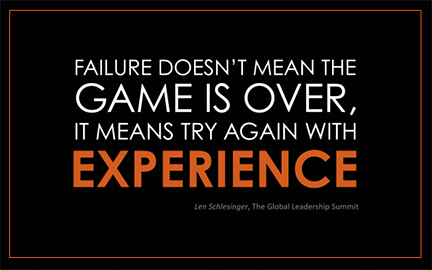 Freelance writing is not for the faint of heart. No, freelance writing is for the determined writer: the writer who wants to make writing a lifelong career.
Freelance writing is not for the faint of heart. No, freelance writing is for the determined writer: the writer who wants to make writing a lifelong career.
Career advisors, high school counselors, and many part-time workers voice their concerns from different perspectives about freelancing full-time as a stable career. In reality, anyone with writing skills can succeed as a freelance writer. Recent studies have revealed that more than 40 percent of the U.S. workforce freelances in some compacity; however, to freelance for the long-term, you must dedicate yourself to learning the nature of the industry.
Ultimately, working as a freelancer means you are in charge of your career, and that means having to find or generate steady employment. Learning to distinguish between real writing jobs and the ones that simply waste your time is a crucial component of that process. You must also establish realistic expectations during your first few months of writing professionally—many new freelance writers don’t earn an income comparable to a full-time job working for a boss.
Expectations for the First Six Months
There are exceptions to every rule, so don’t assume you can’t be successful right away; however, the reality is most writers need to get a feel for what works for them and what doesn’t before they begin to see glints of hope.
For example, some writers really enjoy writing SEO content for companies, while others prefer to have the freedom of writing for their own blogs. Both a content writer and blogger can find success. The first six months are when most freelance writers determine what kind of writing they love.
Writers who don’t enjoy what they are writing or for whom they are writing might be unable to maintain the work ethic that a freelance writer must have.
The first six months of freelancing will likely require you to have part-time employment on the side. You will benefit from earning a steady paycheck each week until you figure out your path as a writer. The path that leads to your success will probably unwravel slowly at first as you try your hand at many types of writing and working for diverse clients and editors.
Some of the areas you may want to explore first are:
- SEO writing
- Copy editing or proofreading
- Blogging
- Article writing
- Copywriting
As you explore these financially-promising areas of writing and apply to jobs, you may experience rejection after rejection, even as you tweak and refine your skills. Rejections of job applications or articles are part of the writer’s life. With each rejection, learn from the editor’s or client’s feedback about your writing. Continue to perfect your writing skills and the way you pitch query letters or proposals as you learn from professionals in the industry.
Setting Goals and Managing Money
As you get better at writing in a certain niche or a field of writing that you enjoy most, you can expect to see more opportunities for high-paying writing assignments. A freelance writer needs to find a steady source of income, and in many cases, sometimes several sources of income.
Tip: One goal to establish within the first six months is to establish relationships with two or three clients who can offer you repeat work.
For example, if your goal is to brand yourself as a healthcare copywriter who writes marketing copy for small and large medical companies, you might find the quickest route to achieve your goal is to first blog for health-related websites, write short feature articles for online publications, and self-publish your own articles to promote yourself. You might also need to write on different topics other than healthcare to earn an income and establish relationships with editors and clients. A writer who has eggs in several baskets will usually not starve, and the flow of income will be strong enough to make a living.
Many companies that hire freelance writers usually have unlimited work—or so it seems, depending on the size of the company and the industry it serves. If you can get your application
approved with an outsourcing agency, a company that regularly advertises freelance opportunities, or sign up with an online crowdsourcing site like Freelancer.com or Elance.com, then you can start to set goals to meet your financial needs.
Important: Staying focused is critical for success, so is setting realistic goals—especially pertaining to income. One of the downfalls of freelancing is setting expectations too high and ignoring the fact that you may need a regular part-time job for a while to pay the bills. Another downfall is underestimating your competition. Freelance writing is highly competitive. Competing for jobs is always tough. Similar to the T.V. reality show Survivor, you, too, must “Outwit, Outlast, and Outplay” others.
Market Yourself
Once you have some steady places to work, you need to work diligently to market yourself and your skills in the areas of your specialty. You may want to write general content for all types of clients and editors at first, but if you want to specialize in an area, such as writing business articles for financial blogs and publications, then keep looking for that kind of work.
Building a portfolio of your works is an effective marketing tool, particularly as you apply for writing assignments. You can use social media sites like LinkedIn.com and Facebook.com, as well as a personal blog, to promote yourself as a writer. Consistent marketing yields the best results for finding work or clients finding you. Marketing is so important that you must begin it as soon as possible.
In the End…
Passion and persistence are what matter in the competitive field of freelance writing. There is work available for writers of all levels, but if your dream is to write for popular parenting magazines or become the next best-selling romance novelist, then continue to develop skills in that kind of writing. If you are writing to earn a paycheck and not writing to follow your passion or interests, then chances are slim that you will succeed in the long-term.



